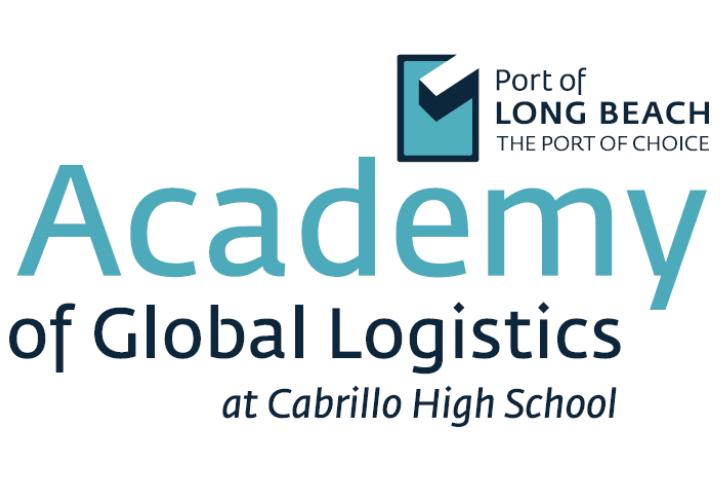CITT News
CITT Develops Innovative Capstone Project for AGL Students

As the demand for STEM and supply chain skills continues to rise, the breadth of opportunities in fields like information technology, data science, logistics and warehouse management, fleet operations, and manufacturing expands significantly for high school graduates. The Port of Long Beach’s 4-year pathway program, the Academy of Global Logistics (AGL), engages students at Long Beach’s Cabrillo High School with the goal of developing skills related to international trade, logistics, business, and finance. Each semester, students take at least one Career and Technical Education (CTE) course. As part of the work it does in support of AGL, CITT is helping AGL teachers to develop a new culminating experience for the students: a final capstone course spread out across two semesters that allows students to demonstrate their mastery of concepts taught in earlier classes. The course is undergoing review and is expected to be part of the AGL curriculum in the fall of 2022. It is also hoped that the class will qualify for transfer credit to UC and CSU schools.
The capstone also presents a significant opportunity for students to work in multi-functional teams to apply their knowledge through problem-solving and identification, data assessment, and research for a case study. Students will utilize both ‘soft’, or foundational skills, including project management, research presentation, writing, and team-based facilitation, and ‘hard’ or more technical skills including demand forecasting network optimization, modeling, and use of Excel, which will give them critical tools to navigate the career market.
In the development of the capstone, CITT Executive Director Tom O’Brien, along with Biju Kewalram, Guest Lecturer at CITT's Global Logistics Professional (GLP) program and Chief Digital Officer of Transformation Core, and Research Assistant Jared Paz, are working alongside an Industry Advisory Board comprising high-level industry participants to ensure the quality, value, and relevance of the course to the real-world logistics workplace. Involving industry is an especially beneficial feature of the course, which allows industry leaders to help foster the skills they need in young students.
The capstone is built around a fictitious Long Beach company, Solar Solutions which sells home-use solar powered products. Rapid growth has led to several converging problems for the business, such as unpredictable demand, high administration costs, rising freight prices, insufficient quality control, slow product development, and inefficient marketing.
Based on the company’s needs, students take on the ‘persona’ of one of six project roles, including: a financial manager to manage and plan for the long-term health of the company; a marketing manager to promote the company’s brand, products, and services; an operations manager to facilitate deliveries and shipments in collaboration with freight companies; a project innovation manager to develop a workplace environment that encourages employee experimentation and ingenuity; a freight forwarding manager to negotiate pricing with shippers and engage with goods research/insurance; and a demand planning/forecast manager to oversee the planning department and predict future consumer demand. Each student, in collaboration with their team, reports to the CEO, develops individual presentations, gives weekly updates on their tasks, and is assessed by instructors.
In addition to career benefits, which can be applied in a variety of fields, students who succeed within the AGL contribute to the industry later in various ways. For example, CITT Research Assistant and AGL alum Jared Paz reflects on his role in helping to develop the capstone course. “Recent high school graduates are an immense help when creating high school programs that relate to transportation curriculum.” The capstone, with the support of the Port of Long Beach and CITT, will help ensure that the developing workforce is readily equipped with the tools needed to succeed in an industry continuing to adapt to COVID-19, climate change, globalization, and new technology.
More Education and Training More Research: Workforce More Trade & Transportation More Workforce Development